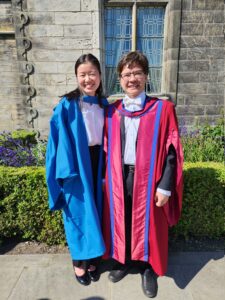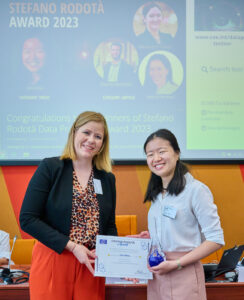About the Programme
The School of Computer Science at the University of St Andrews is offering a number of PhD studentships for 3.5 years of study in our doctoral programme. Funding is available to cover tuition fees for UK, EU and international students, as well as living expenses (a stipend of £18,622 per annum, or the standard UKRI stipend if it is higher). We offer two types of studentship:
- a fully-funded studentship consisting of tuition and stipend
- tuition-only studentships, funded through the University’s ‘handsel’ scheme for tuition waivers
The School of Computer Science is a centre of excellence for computer science teaching and research, with staff and students from Scotland and all parts of the world. It is a member of the Scottish Informatics and Computer Science Alliance (SICSA).
Eligibility Criteria
We are looking for highly motivated research students willing to be part of a diverse and supportive research community. Applicants must hold a good BSc or MSc in Computer Science, or a related area appropriate for their proposed topic of study.
We especially encourage female applicants and underrepresented minorities to apply. The University of St Andrews is committed to promoting equality of opportunity for all, which is further demonstrated through its working on the Gender and Race Equality Charters and being awarded the Athena SWAN award for women in science, HR Excellence in Research Award and the LGBT Charter.
Application deadline
1st February 2024.
How to apply
Any PhD application received through the University PGR application system by the deadline will be automatically considered for these studentships. There is no need for a separate application. Note, however, that if you are applying for a CSC Scholarship then you cannot be considered for these School studentships due to conflicting application dates.
We strongly advise applicants to contact potential supervisors to discuss their research proposal before applying. Historically, applications with no named supervisor have been much less likely to result in an offer.
The School’s main research groups are Artificial Intelligence, Computer Systems, Human-Computer Interaction, and Programming Languages. You can find further details at https://www.st-andrews.ac.uk/computer-science/research/groups/. A list of existing faculty and areas of research can be found at https://www.st-andrews.ac.uk/computer-science/prospective/pgr/supervisors/. All supervisors listed on this page may be contacted directly to discuss possible projects. You can define your own project or discuss a project currently on offer. Some highlighted potential areas or projects offered by supervisors include:
- Tool support for the representation of ethical concerns in software artefacts (Dr Dharini Balasubramaniam)
- Automated Configuration of Constraint Solvers via Machine Learning
(Dr Nguyen Dang) - ILNP ubiquitous communications (Prof Saleem Bhatti)
Full details on how to apply can be found at https://www.st-andrews.ac.uk/computer-science/prospective/pgr/how-to-apply/
Application enquiries can be directed to pg-admin-cs@st-andrews.ac.uk.




